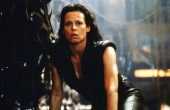lucyviolets
Renaissance literature enthusiast; often found in pursuit of the perfect cup of tea.
Contributor I
- Plebian Penman
- Lurker
- Sharp-Eyed Citizen
- ?
- Articles
3 - Featured
0 - Comments
8
- Ext. Comments
8 - Processed
7 - Revisions
5
- Topics
4 - Topics Taken
5 - Notes
4
- Topics Proc.
4 - Topics Rev.
0
- Points
550 - Rank
X - Score
253
Latest Articles
Latest Topics
'Missing Mother' and Other Tropes: Examining a fantasy protagonist's backstoryThis article seeks to pinpoint and discuss re-used/well-worn tropes in literature surrounding the issue of family and the background/ongoing story of a fantasy literary protagonist! What exactly is it about the tropes that fuels a protagonist’s backstory – that makes it interesting? Why are these tropes used time and again (i.e. Dead Parents, Wicked Stepmother, Death by Childbirth); and in your opinion, are they useful, or too well-worn? Are there any notable exceptions where family either doesn’t play a huge role (i.e. they’re not mentioned), or they do, and are treated much as part of the protagonist’s current story line as their past reason for doing things/giving them angst and trauma? (It could be worth looking at TV Tropes and other websites for names of particular ‘tropes’ to discuss and explore).
|
"Going Viral": Internet Fame and Influence.For the past few years, the phrase ‘going viral’ has been shown, to a increasingly greater extent, to shape what we might see and hear in the media – for better, or worse. Snapchat stories, vines, Youtube videos, memes, etc. gain attention and become news, earning their ‘stars’ perhaps longer than five minutes of fame, and instead spawning television appearances, or merchandise, for example. How much is this a sign of the ongoing pace of what we consume as media on the internet, and how much of it can be controlled? Does this have any good, or detrimental effects (e.g. using examples, is there anything very good, or very bad, that has happened from a particular video/article/picture, going viral?)?
|
Star Trek: Discovery - Decent or Dud?An analysis of the newest addition to the Star Trek franchise. Does the 2017 update to beloved 80/90s spin-offs like DS9 and Voyager really pack the same punch? Or is possible that older TV shows and their newer instalments are want to be affected by nostalgia and fans, as much as they are by new script and plot?
|
Space Opera: Sci-Fi or Soap Opera?Initially coined as an insult, the term ‘Space Opera’ has now become synonymous with melodramatic space adventure: books written as colourful and dramatic pieces of literature which largely explore the human condition and entertain the question of where humanity might fit among other, fictional races in the stars. To what extent is this insinuation that Space Opera might not be as high-brow compared to other books in the wider Science Fiction genre, correct? Is Space Opera the so-called ‘Soap’ of the Science Fiction genre, or is it more than its title would suggest? Indeed, would you agree with the negative connotations that imply this subgenre is a ‘lesser’ form of sci-fi, outworn and tacky? Or is it merely a different, and more interesting, strand of Science Fiction that is less concerned with the intricacies of actual science? Probably worth discussing some of the more popular, and well known, Space Opera books and series and explaining why they might be so popular (as some examples, see: Douglas Adams’ ‘Hitchhikers Guide’, Frank Herbert’s ‘Dune’, Orson Scott-Cards ‘Ender’s Game’, Kevin J. Anderson’s ‘Saga of the Seven Suns’).
|
Latest Comments
| Science-Fiction: Defining a Sprawling Genre. | |
As a self professed video game nerd (especially for RPG’s like Dragon Age) I found your take on this interesting! You are right about the quality of video games improving in terms of their depth (I mean, think about all of the lore available in games like Mass Effect and Dragon Age?!). Great writing, in my opinion, is crucial to choice based games like that. An in-depth and well argued article! | Autism to Artistic Integrity: Do Video Games Need Good Plotting? |
This is an incredibly well-researched, detailed, and thought provoking article! Thank you for writing it! | How Trump Won: Heroes, Villains and Surviving the Apocalypse |
This was a really interesting article! I’m glad that streaming sites, like Netflix, are more common. Yet, as you’ve mentioned with the ‘releasing all of the episodes’ habit it has, it’d be intriguing to see what positive or negative impact that has on viewers (as often, the appeal of shows, is to be hooked in and wait for interesting plot to develop, rather than rush straight through). | Netflix and Impact |
I really enjoyed reading this article! As a fan of Austen re-tellings, in whatever form they come in, your insight into PPZ gave me much to think about (and I agree with you!). The focus on the zombies as a symbol for the ‘economic anxieties of Austen’s historical era’ was a nice, thought-provoking touch, and I would have been interested to see how you could have explored this more. | Pride and Prejudice and Zombies: Is Jane Austen Rolling in Her Grave? |
Having only ever looked at homosocial relationships/bonding in Shakespeare (in his comedies, to be more precise), seeing how it appears in Marlowe’s work is fascinating! Great article. | Homosocial Bonding in Marlowe’s Hero and Leander |
Having studied Tolkein’s LOTR during my undergrad, this article was brilliant to read! I definitely found the use of songs in his three books most interesting, and I’m so glad this is something you explained in this article. | The Origins of Middle-Earth: Gods, Poems, and Dragons |
As an avid fan of KPop, including groups like 2NE1, BigBang, Block B and BTS, reading this article made me so happy! You made an interesting point about the money spent on the videos definitely being of worth, given the amount of views these videos get, especially given how influential Youtube is for a musician’s career now. I wonder that given KPop music is perhaps influenced, and adapts, to the wider trends in Western music too (i.e in 2011, there was a lot of dubstep used!) this might be another factor as to why Western audiences might engage with it/find it catchy? Fabulous article, and a great read. | K-Pop on YouTube: How the Platform Has Made it Global |



I adore how you’ve done a neat walk-through and dissection of this genre. A really interesting read 🙂